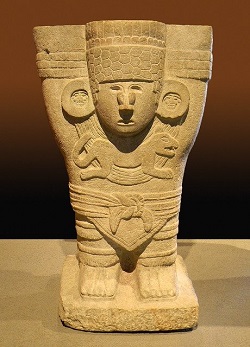Indian Ancient History Quiz General Knowledge
Overview:
| Questions and Answers Type: | MCQ (Multiple Choice Questions). |
| Main Topic: | General Knowledge. |
| Sub-topic: | Indian Ancient History Quiz. |
| Number of Questions: | 5 Questions with Answers. |
In many competitive examinations in India, the Indian Ancient History Quiz are asked, and here we are providing Indian Ancient History Quiz with answers and an explanation of the questions. It is not just for students preparing for any exams, you can learn Indian Ancient History Quiz for your general knowledge. This Indian Ancient History Quiz section will definitely increase your GK about Indian history and help you to prepare for your upcoming examinations.
Monolith Design:

Directions: In the following Indian Ancient History Quiz, four answers are given, and only one answer is correct. Please read the questions carefully and choose the correct answers. If you want to check the answer, click on the answer button and know the correct answer with an explanation. We hope you will find this section of the Indian Ancient History Quiz helpful to increase your knowledge. The given questions are mainly taken from the stone, Bronze, and Iron age period of Indian Ancient History.
1. The earliest inscription on the stone was in which language?
- Sanskrit
- Prakrit
- Pali
- Brahmi
Answer: (b) Prakrit
Solution: The earliest inscription stone is Sahgaura Tamralekh, which has been excavated from the Gorakhpur district, Uttar Pradesh, India. The earliest inscription on the stone was in the Prakrit language, written in the Mauryan period.
Solution: The earliest inscription stone is Sahgaura Tamralekh, which has been excavated from the Gorakhpur district, Uttar Pradesh, India. The earliest inscription on the stone was in the Prakrit language, written in the Mauryan period.
2. The earliest evidence of rice cultivation in the Ganga valley has been found at-
- Kaushambi
- Senuwar
- Sohgaura
- Lahuradewa
Answer: (d) Lahuradewa
Solution: The earliest rice cultivation in the Ganga valley has been found at the Lahuradewa village of Sant Kabir Nagar in Uttar Pradesh, India.
Solution: The earliest rice cultivation in the Ganga valley has been found at the Lahuradewa village of Sant Kabir Nagar in Uttar Pradesh, India.
3. Who among the following cultures were the first to paint their pottery?
- Iron Age
- Neolithic
- Mesolithic
- Chalcolithic
Answer: (d) Chalcolithic
Solution: The chalcolithic culture was the first to paint their pottery.
Solution: The chalcolithic culture was the first to paint their pottery.
4. The earliest evidence of agriculture in the Indian subcontinent has been obtained from which place?
- Brahmagiri
- Chirand
- Mehrgarh
- Burzahom
Answer: (c) Mehrgarh
Solution: The earliest evidence of agriculture in the Indian subcontinent has been obtained from Mehrgarh, currently situated in Balochistan, Pakistan.
Solution: The earliest evidence of agriculture in the Indian subcontinent has been obtained from Mehrgarh, currently situated in Balochistan, Pakistan.
5. Which one of the following sites has yielded the cultural remains, from the Neolithic to Harappan period?
- Kalibangan
- Mehrgarh
- Kotdiji
- Amri
Answer: (b) Mehrgarh
Solution: Mehrgarh site has yielded cultural remains from the Neolithic to the Harappan period.
Solution: Mehrgarh site has yielded cultural remains from the Neolithic to the Harappan period.
General Knowledge Questions
Indian Ancient History Quiz
Related Topics
Basic General Knowledge
Biology
Books and Authors
Chemistry
Famous Places
Indian Famous Personalities
Important Dates and Days
Indian Economy
Indian Environment and Biodiversity
Indian Geography
Indian Ancient History
Indian Medieval History
Indian Modern History
Indian Polity and Constitution
Physics
Physical Geography
Sports
World Geography